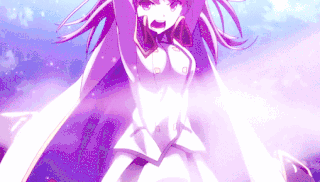
This information is used to ensure our website is operating properly, to uncover or investigate any errors, and is deleted within 72 hours. Log files do not capture personal information but do capture the user's IP address, which is automatically recognized by our web servers. Website log files collect information on all requests for pages and files on this website's web servers. You may, however, visit our site anonymously. When ordering or registering on our site, as appropriate, you may be asked to enter your: name, e-mail address, mailing 0address, phone number or credit card information. University of Hawaiʻi Press collects the information that you provide when you register on our site, place an order, subscribe to our newsletter, or fill out a form. University of Hawaiʻi Press Privacy Policy WHAT INFORMATION DO WE COLLECT? Posted in Manoa Tagged English, Fiction, Japan, Japanese literature, Mount Fuji, Poems, Translation, University of Hawai'i at Mānoa Post navigation Order Mountain/Homeas a book or subscribe to MĀNOA: A Pacific Journal of International Writingfrom UH Press. Launched in 1989 at the University of Hawai`i, MĀNOA brings the literature of Asia, the Pacific, and the Americas to English-speaking readers.
#Murasaki fuji university plus#
Plus illustrations and contributor notes.īrowse full-text of Mountain/Home online at Project MUSE. Haiku by Takahashi Mutsuo and translated by Jeffrey Angles and Emiko Miyashita Sketches: A Man and His Home by Takahashi Mutsuo and translated by Jeffrey Angles Villon’s Woman by Dazai Osamu and translated by Ralph McCarthy

A Tale of a Mount Fuji Cave: This story from the Kamakura Period tells of a journey to the mouth of hell and back.from The Confessions of Lady Nijo: Lost for over six hundred years, Lady Nijo’s manuscript was discovered by a Japanese scholar in the Imperial Library in 1940.Many of the waka in the collection are “dialogue poems,” written in pairs by men and women of the court, speaking the cloaked language of secret love affairs, seductions, and laments. Love Song and Reply: These poems are from the Gosen Wakashū, a major tenth-century anthology of Japanese poetry.The Tale of the Bamboo Cutter: Taketori Monogatari, a tenth-century tale, recounts the origin of Mount Fuji’s name and is one of the earliest examples of Japanese literary fiction.Peter MacMillan provides these translations and introductions. One Hundred Literary Views of Mount Fuji: Mount Fuji has been celebrated by poets, novelists, and playwrights for almost 1,500 years, from Japan’s earliest literary works to the present. The works reveal how Japanese attitudes toward Mount Fuji have changed over time, particularly after the country was opened to the West in the nineteenth century. The volume opens with traditional folktales, court poetry, Edo Period poetry, and contemporary fiction-all from “One Hundred Literary Views of Mount Fuji,” a collection of fiction, poetry, and nonfiction related to Japan’s national symbol.

Mountain/Home presents new translations of selected Japanese works from the medieval period to the present.

The new issue of MĀNOA : A Pacific Journal of International Writing, volume 29 number 2, is a collection of Japanese literature in translation edited by Leza Lowitz and Frank Stewart. “Mount Fuji in the Spring.” Norikane Hiroto.


 0 kommentar(er)
0 kommentar(er)
